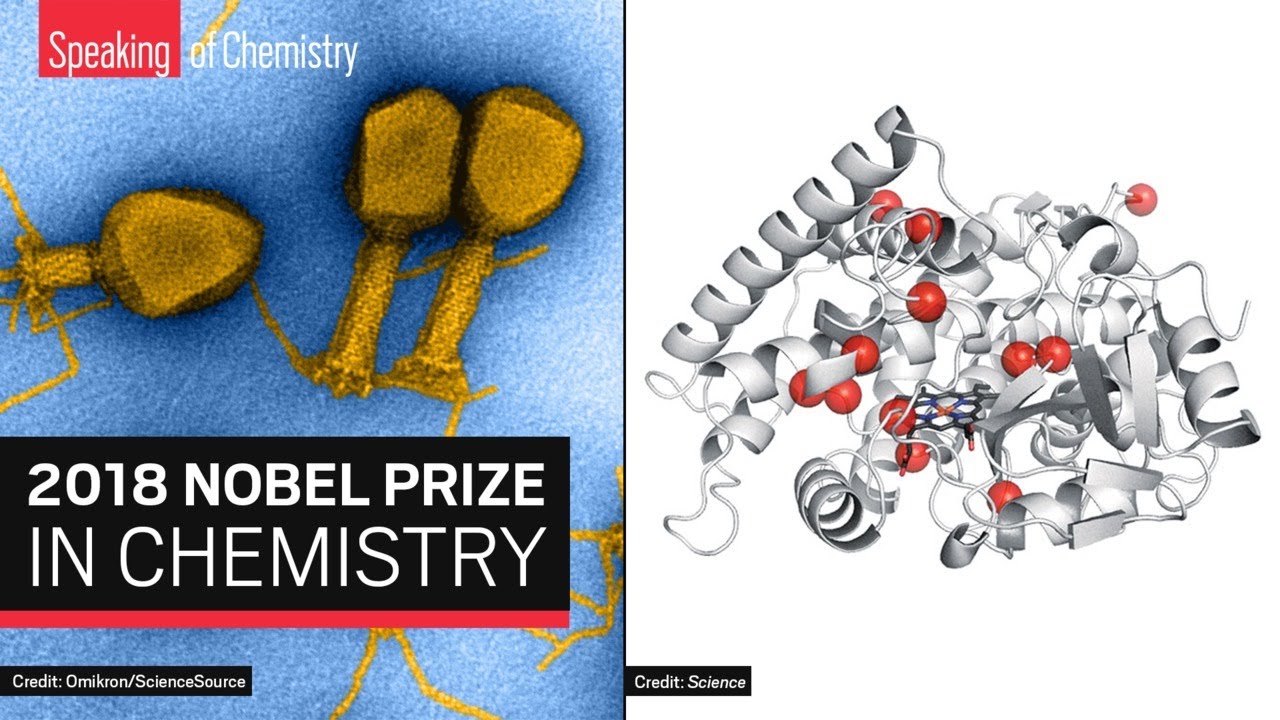Frances Arnold, George Smith, and Gregory Winter won the 2018 Nobel Prize in Chemistry. Watch our latest episode to learn why. ↓↓More information below↓↓
This trio took home chemistry’s top honor for developing techniques, directed evolution and phage display, that identify useful new enzymes, antibodies, and more. We know a lot of chemistry fans were rooting for lithium-ion-battery guru John Goodenough to be tapped for the 2018 prize, but stay with us: We are excited about the impactful chemistry involved this year, and we’re about to break it down for you. Let us know what you think about the award going to directed evolution and phage display in the comments.
Correction: At about 2:30 in the video, we incorrectly refer to Nobel Laureate Gregory Winter as George Winter.
Sources:
Celia Arnaud’s stunning news story on the prize for C&EN:
Frances H. Arnold, George P. Smith, and Gregory P. Winter share 2018 Nobel Prize in Chemistry | C&EN
Frances Arnold’s work:
Tuning the activity of an enzyme for unusual environments: sequential random mutagenesis of subtilisin E for catalysis in dimethylformamide | Proc. Natl. Acad. Sci. USA
George P. Smith’s work:
Filamentous fusion phage: novel expression vectors that display cloned antigens on the virion surface | Science
Greg Winter’s work:
Phage antibodies: filamentous phage displaying antibody variable domains | Nature
Speaking of Chemistry is a production of Chemical & Engineering News (C&EN), the weekly newsmagazine of the American Chemical Society.
Contact us at speakingofchem@acs.org!

